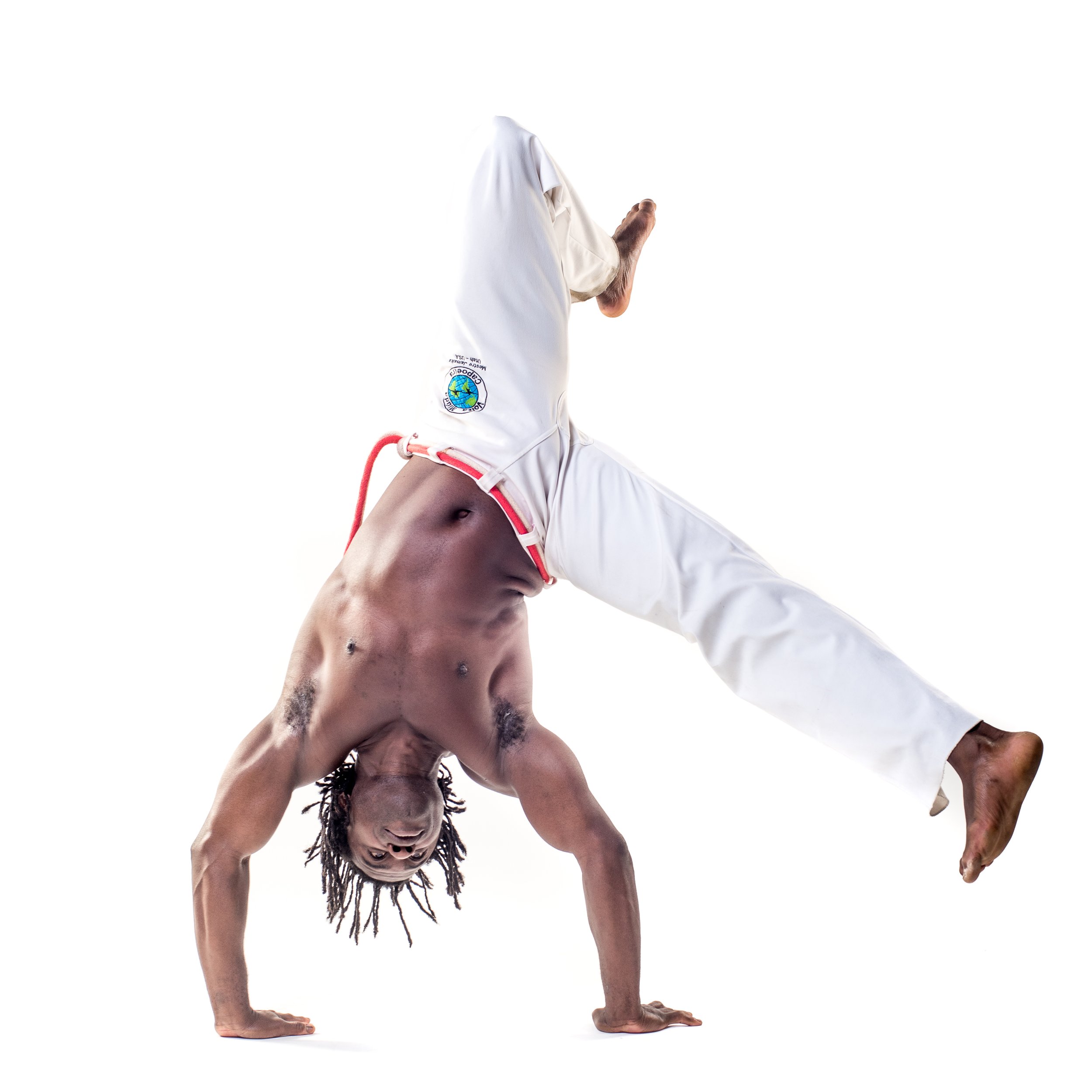Featured in Salt Lake Magazine
Jen Hill featured Mestre Jamaika in Salt Lake Magazine’s fall 2020 issue. Here’s an excerpt:
Is it dance, acrobatics or self-defense? Chances are you’ve noticed a group practicing capoeira at Liberty or Sugar House park—a group of people wearing white pants, colorful cords as belts and singing in a drum circle. Spotting the Brazilian flag, you can assess they aren’t singing in Spanish, but in Portuguese, which is considered a pluricentric language, meaning it has evolved with several interacting countries and cultures—with a compelling, powerful history. The same goes for what they’re doing: capoeira.
“It hits the best of everything,” says Mestre Jamaika (Mauro Romualdo) founder, Capoeira Mestre of Volta Miuda capoeira, and born in Brazil, Jamaika started training at the age of seven. The history of capoeira extends to Africa and tribes from Angola, he says, “Slaves living on Brazilian plantations weren’t allowed to practice self-defense openly, and disguised their training by combining it with dance-like movements, singing, and the rhythms of drums and traditional instruments.” Like sparring without contact, capoeira resembles a “game” of fluid movements, spinning kicks, aerials and hip hop ground moves like the coffee grinder and head spins all while being encircled by the claps and singing of spectators. As Mestre Jamaika says, “Growing up, my involvement with capoeira saved my life. No matter where I travel in the world if I find a group that practices, I feel like I’m home.”
But what really is capoeira? Watching is delightful, but participating is kind of the point for those of any age, culture or gender, during the class. Mestre Jamaika shouts out to me, “I know you want to try this!” And while I haven’t attempted a cartwheel for a while, he says it never is too late to join; my heart skips a beat, “Meu Deus é bom!”
Check it out here: https://www.saltlakemagazine.com/from-brazil-with-love/

